The African Green Revolution Forum, AGRF 2019 that was being held in Accra, Ghana finally came to an end on 6th September. The week-long event, under the theme, “Grow Digital: Leveraging Digital Transformation to drive sustainable food system in Africa”, had assembled over 2,300 global players in the agricultural sector who were discussing practical ways to use technology to transform the sector. The AGRF is considered the world’s most important and impactful forum for African agriculture, pulling together stakeholders in the agricultural landscape to take practical actions and share lessons that will move African agriculture forward. The delegates also discuss and commit to programs, investments, and policies that can counter the major challenges affecting the agriculture sector on the continent. These are the key highlights from the forum;
Mastercard Foundation committed to invest $500 million in launching a new Young Africa Works program. The initiative will provide capital to support the efforts of a new generation of young “agripreneurs” who are more business-oriented and more tech-enabled and are investing their talent in farming and other agriculture-oriented ventures. The Foundation’s President, Reeta Roy said the $500 million commitment to Young Africa Works brings the Foundation’s total investments in African agriculture to $1 billion.
Microsoft, through its 4Afrika Initiative, announced a new collaboration with AGRA to co-create technology solutions in agriculture. The collaboration will support AGRA’s digital transformation as it works to improve food security for 30 million farming households across 11 countries. The two organizations will explore uses of big data and artificial intelligence in enabling data-driven, precision farming that increases farm productivity and profitability.
Private and public sector stakeholders executed commitments worth over $200 million to develop and strengthen several value chains in Malawi, Mozambique, Nigeria, Uganda and Eswatini. Companies involved included Dangote Farms Ltd. of Nigeria, Press Agriculture Ltd of Malawi, Pearl Dairies Ltd. of Uganda, and Fresh Ltd. of Mozambique and Eswatini. In addition, a Unilever-IDH partnership committed $28.6 million towards investments in small and medium size enterprises (SMEs) along the agri-food value chain. The proposed investments, coupled with support from various stakeholders, is anticipated to impact more than 15,000 smallholder farmers and create seven million jobs.
Africa Regional Food Trade Coalition was developed and launched by a large and diverse coalition of leaders from the public and private sector. They are building on the establishment of the new African Continental Free Trade Area (AfCFTA) and market opportunities evidenced in the region’s $35 billion annual food import bill. The goal is to increase regional food trade via more predictable policies and mechanisms that encourage new agribusiness investments across the continent.
Dr. Emma Naluyima of Uganda and Baba Dioum of Senegal were unveiled as this year’s joint winners of the prestigious Africa Food Prize and U.S.$100,000 for their commendable efforts in demonstrating and promoting innovative and sustainable growth in Africa’s agriculture through improved resource use and market links.
Seven young agricultural entrepreneurs, including four women, were awarded for digital innovations as the winners of the Pitch Agrihack Competition organized to support young agricultural entrepreneurs to build viable businesses and boost innovation for a more sustainable agricultural sector. The winners of the early stage start-ups are Profish, Ghana (€7,500), and Savanna Circuit Tech, Kenya (€5,000). For the mature stage start-up Jaguza Tech, Uganda (€15,000); Arinifu Technologies, Kenya (€12,500). Trackball Global Technologies Nigeria were given the public choice award (€5,000). The Data Analytics Award went to Foodlocker Limited, Nigeria (€10,000) and the GreenTec award to TechShelta Company Ltd., Ghana (€5,000).
The annual Africa Agricultural Status Report (AASR) report was launched and presented new evidence that the “missing middle” is actually a “hidden middle” of SME-powered agri-food supply chains sourcing directly from millions of smallholder farmers across Sub-Saharan Africa, accounting for 64% of the volume of food consumed in the region. The report noted that the rise of SME’s has been largely unrecognized by policymakers, even as it has bridged gaps that previously separated most small-scale farmers from commercial markets.
At the Presidential Summit, moderated by the Rt. Hon. Tony Blair, the former Prime Minister of the United Kingdom, African leaders discussed the different ways digital technology is becoming a fixture of the African farming landscape. The discussions were anchored by the presentation of the Digitalisation of African Agriculture report from the Technical Centre for Agricultural and Rural Cooperation (CTA) and Dalberg Advisors that found out that more than 90% of the market for digital services that support African smallholders remains untapped and could be worth more than $2.26 billion.
The forum also launched a major new initiative from the Global Commission on Adaptation that is expected to call to action for new investments and initiatives to help smallholder farmers in sub-Saharan Africa adapt to the impacts of climate change. In support of that effort, the delegates issued a Declaration on Increasing the Adaptation and Resilience of African Food Systems that calls on multilateral, bilateral and private sector partners to support increased funding focused on multiple climate-related challenges to food production with a special focus on women and youth.
Following a competitive bidding process, the AGRF Partners Group unanimously announced that the Republic of Rwanda will host the AGRF 2020 and serve as the long-term home country of the Forum going forward. It will adopt a “home and away” model where the Forum will alternate between hosting the event in Rwanda in even years and different host countries across the continent in alternate years. “Rwanda’s hosting of AGRF 2018 featured the largest attendance on record and the leadership of H.E. President Paul Kagame, both in presiding over that historic gathering and in his broader commitment to the transformational power of agriculture, has set a model for all to follow,” said Hailemariam Desalegn, Board Chair for the Alliance for a Green Revolution in Africa (AGRA) and former Prime Minister of Ethiopia.
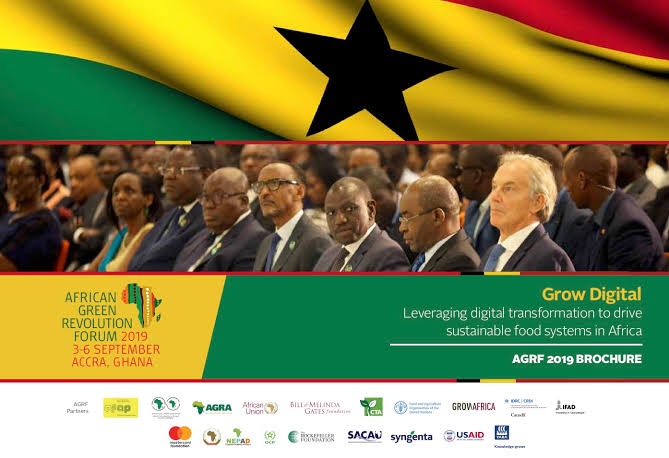
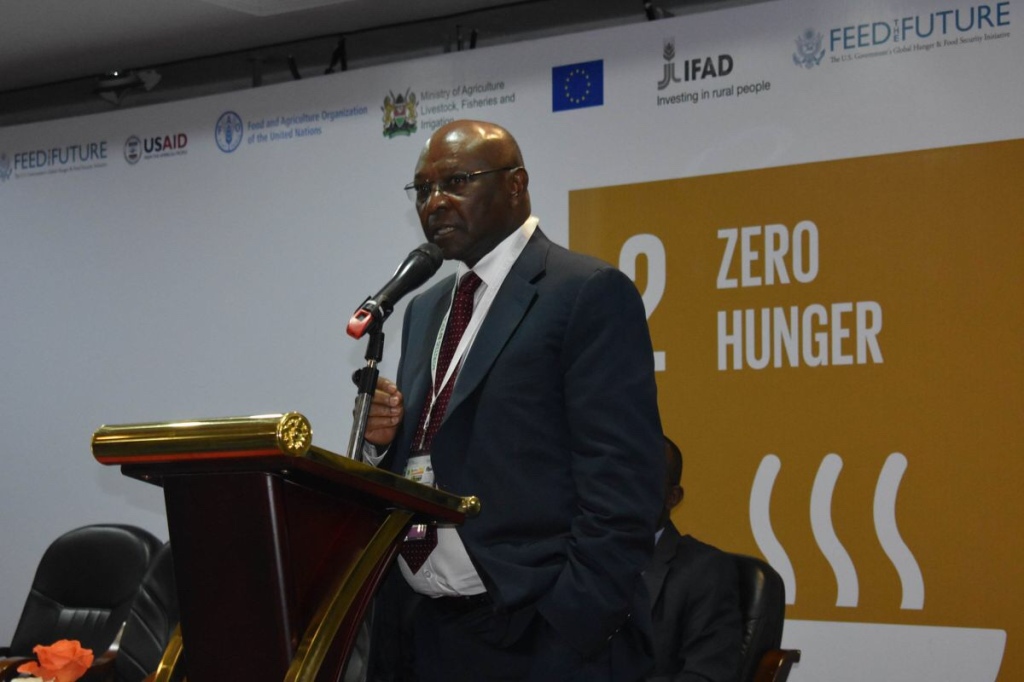
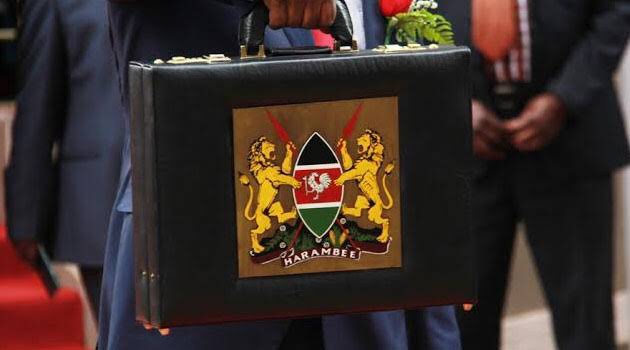
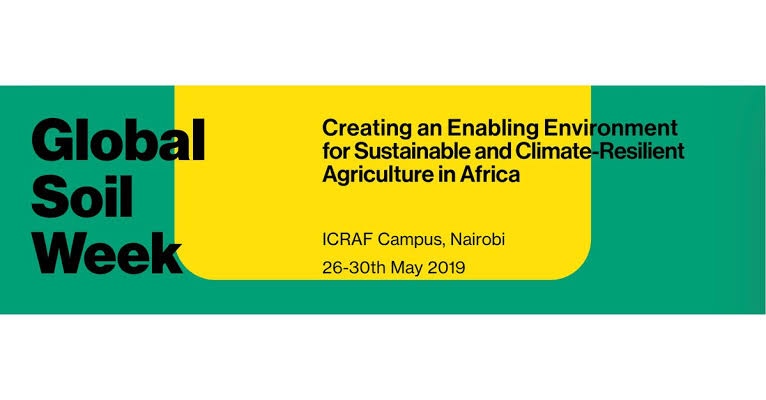
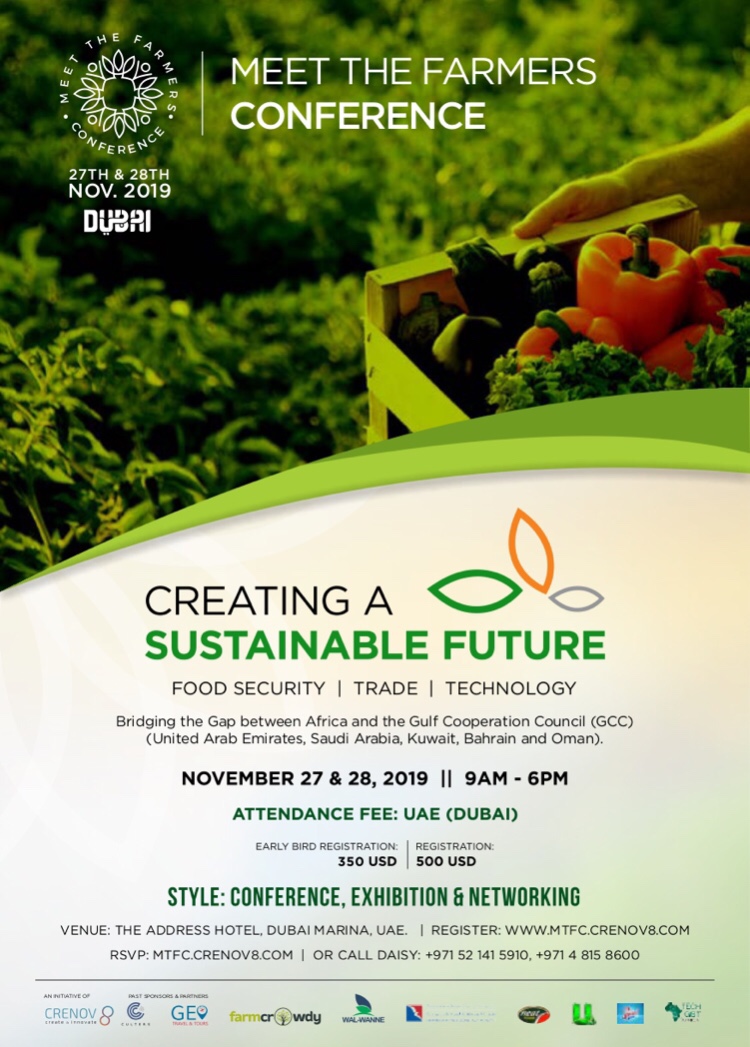
Leave a comment